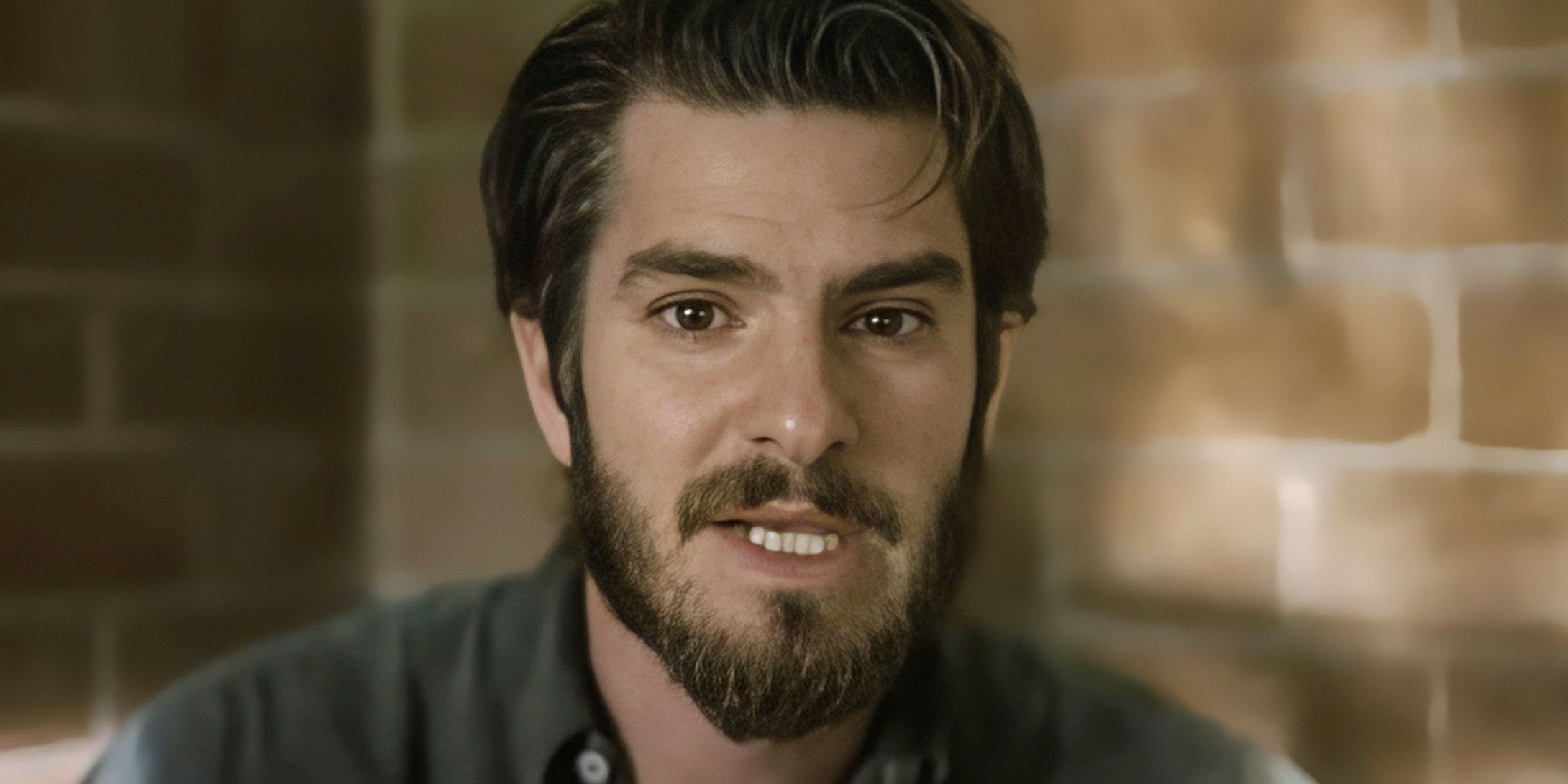
The ending of ‘After the Hunt’ is complex and open to interpretation, offering both character-focused resolutions and broader themes to consider. Critics have accurately described the film as thought-provoking and likely to spark debate, as it tackles important social issues. Starring Julia Roberts, Ayo Edebiri, and Andrew Garfield, the psychological thriller centers around a student’s accusation of assault against a Yale professor, a storyline particularly relevant in the wake of the #MeToo movement and sure to generate discussion.
Director Luca Guadagnino (known for *Challengers*) is releasing an extended version of *After the Hunt* with a new scene showing what happened to the characters five years later. We learn that Alma (Julia Roberts) has recovered and is now a Dean at Yale. Maggie (Ayo Edebiri) is engaged and admits she was once confused about her feelings for Alma, unsure if she admired her or wanted a relationship with her. Meanwhile, Hank (Andrew Garfield) is working behind the scenes in politics as a public relations strategist.
Who Told the Truth: Maggie or Hank?
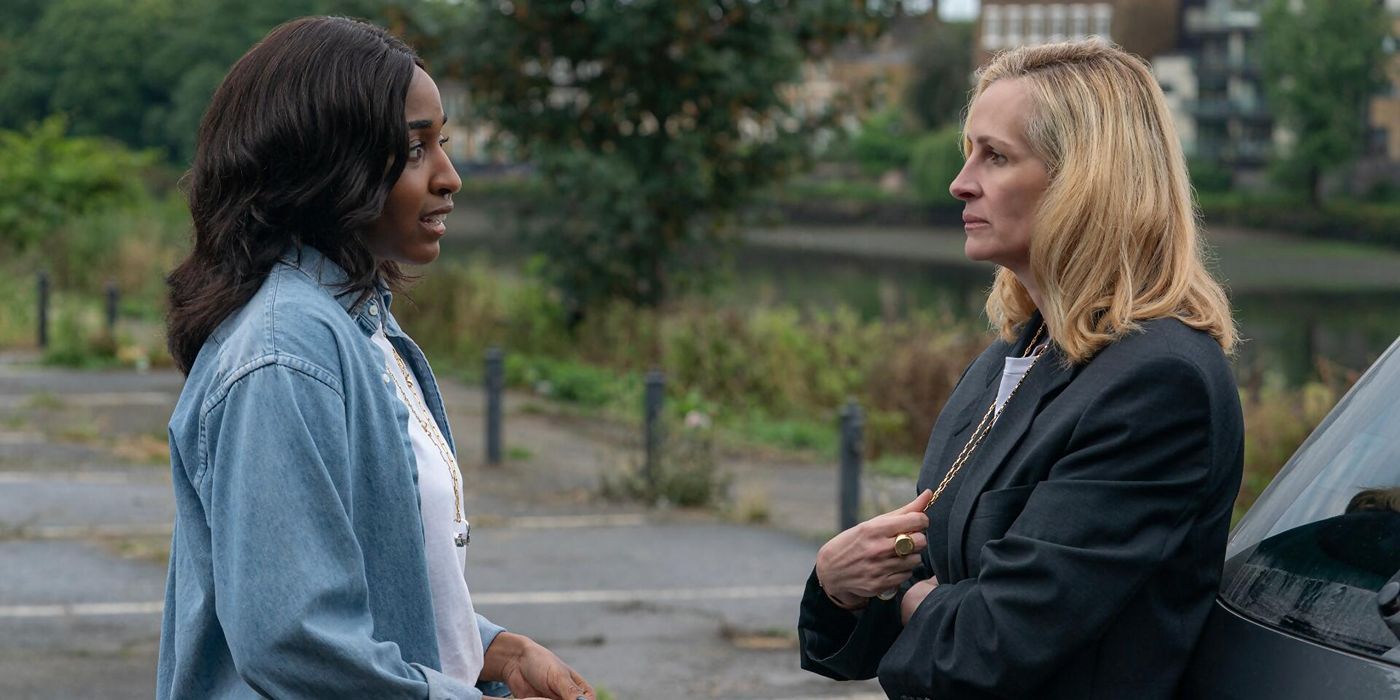
Amazon MGM Studios
Ultimately, *After the Hunt* doesn’t offer a definitive answer about who was in the right or wrong. While some viewers might prefer a clear resolution, the film’s ambiguity encourages us to form our own opinions about Maggie and Hank’s choices. Because we only see what happens on screen—not what goes on behind closed doors—we’re meant to interpret the situation much like the characters, such as Alma, do.
I’ve been watching Hank, and honestly, he comes across as pretty rough around the edges from the start. He really pushes boundaries – I’ve noticed him touching people and getting uncomfortably close, showing he doesn’t respect personal space. He’s always criticizing younger people, complaining about them wanting things too easy and having too many rules, which is ironic considering his own behavior. While he sometimes makes good points, it often comes across as arrogant and he seems to lack understanding or empathy. He makes a lot of sweeping generalizations, and it’s just frustrating to watch.
Hank often sounds like he’s not telling the truth. While he can sometimes appear insightful and convincing, especially when trying to get his way, his dramatic behavior is clear, particularly in the diner scene with Alma. The most telling moment is when he physically attacks Alma, confirming Maggie’s accusations about his capacity for violence. He even seems to acknowledge he doesn’t fully grasp when he’s in the wrong, making it likely he *is* capable of the things he’s been accused of.
The real issue stems from Maggie, who isn’t blameless in all of this. Hank claims he was trying to get Maggie to admit she plagiarized her doctoral thesis – and it turns out he was right. Both Alma and the audience later see Maggie copying Alma’s work, using it in her opinion piece attacking Hank. What’s concerning is that Maggie shows no remorse for cheating, which raises questions about her honesty in other areas.
Maggie often positions herself as a victim, highlighting the challenges she faces as a Black woman in a profession dominated by men, and contrasting herself with Hank’s advantages. However, the film reveals she actually comes from a very privileged background, suggesting her position was secured through family connections. This leaves the audience with two unlikeable characters, each with their own perspective on events. Ultimately, the film suggests that determining who is actually ‘right’ or ‘wrong’ isn’t important to the story.
Alma’s Life & Backstory Explained
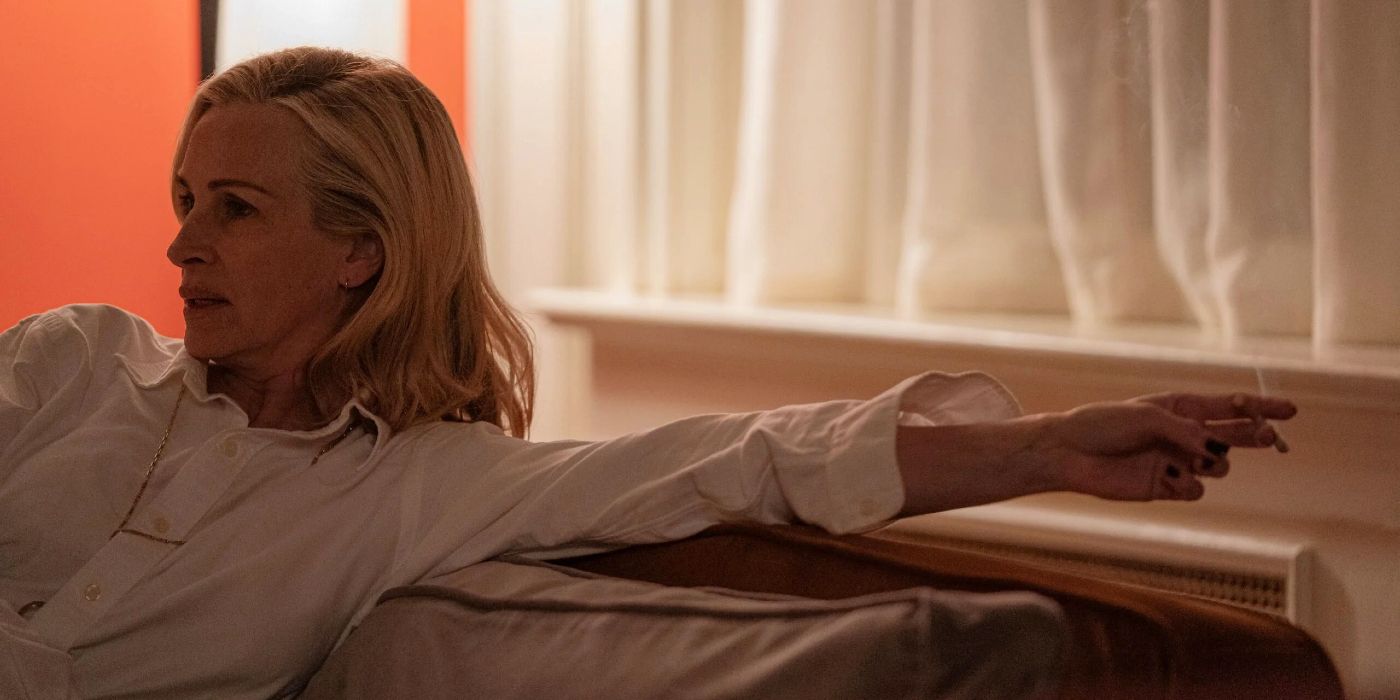
Amazon MGM Studios
Before we discuss the film’s overall message, let’s look at Alma and her point of view. She and Frederick (Michael Stuhlbarg) have been married for a long time, but their romance has faded, leaving only a frank and comfortable connection. Frederick, a psychologist with a deep understanding of Alma, freely shares his opinions about her and those around her, yet still shows her love and care.
Okay, so as a fan, it’s pretty clear Alma isn’t into Frederick at all. Honestly, I was surprised she barely reacted when she found his laptop open to *that* – it’s like she’s totally okay with looking elsewhere. She’s even admitted she’s attracted to other guys, and it seems like she has a thing for Hank. And with Maggie clearly having feelings for Alma, it makes me wonder if Maggie might want Hank gone, just to have a better chance with Alma herself. It adds another layer to everything!
Alma shared with Frederick that she’d experienced something similar in the past. Years ago, as a fifteen-year-old, she was groomed and sexually abused by a friend of her father, and she’s carried immense guilt ever since, believing she was somehow responsible. After she wrote an article about him, he tragically took his own life. While Frederick sympathized, he reassured her that she wasn’t to blame, and even if she’d felt any desire at the time, the adult should have refused.
This film draws connections between all its relationships. Like other films by Luca Guadagnino, sex is a key motivator for the characters. The characters struggle with understanding their own desires and how to fulfill them, which causes confusion and leads to erratic actions. Essentially, everyone wants something, but they’re unsure of what it is, creating a lot of turmoil.
What Does ‘After the Hunt’ Mean?
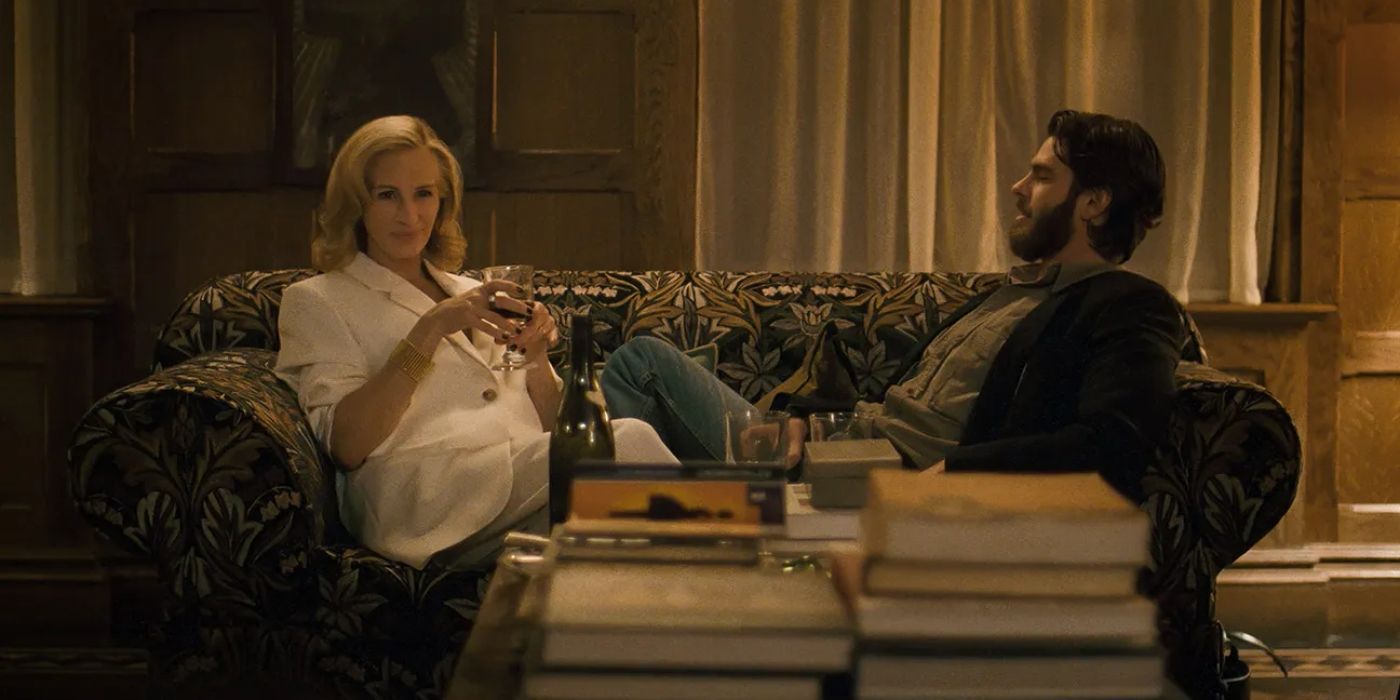
Amazon MGM Studios
A key moment in the film features a teacher, Alma, criticizing her student, Katie, for overcomplicating a simple situation with abstract ideas. This debate is important because the film itself subtly does the same thing to the audience. *After the Hunt* presents a current, emotionally charged issue to subtly lower the audience’s defenses. Director Luca Guadagnino anticipates viewers will naturally take sides and develop preferences for the characters, similar to the response to *Challengers*. However, while analyzing the specifics isn’t incorrect, it misses the larger point the film is trying to make.
The film *After the Hunt* explores complex ideas about ethics and guilt by focusing on the experiences of Maggie and Hank, and more generally, on the phenomenon of cancel culture. As the film points out, the idea of publicly shaming and punishing wrongdoing isn’t new – historically, people have always acted as judge, jury, and executioner. This suggests that morality isn’t necessarily about what people *do*, but how their actions are *perceived*.
The film follows Alma, Maggie, and Hank, who all bend the truth to seem more virtuous. It examines how events like the #MeToo movement can change what society considers right and wrong. The movie presents a bleak view, with characters constantly debating ethics while repeatedly acting badly, implying that morality is often just a performance designed to maintain a good public image.
The film is rich with philosophical and cultural allusions, particularly evident in the character of Kim (Chloë Sevigny), the school psychiatrist. She repeatedly tests ethical limits by sharing confidential information, yet surprisingly objects when Alma uses her prescription pads to illegally obtain medication.
While at a bar with Alma, Kim is surprised to hear music by Morrissey, the often-debated frontman of The Smiths. Alma points out it’s actually The Smiths playing, and she’s right. However, the scene hints that using the band’s name lets people distance themselves from Morrissey’s controversial image. Similarly, Kim has a poster of Clint Eastwood in *Dirty Harry* in her office, subtly showing her appreciation for a controversial figure by focusing on his role as a character in a film.
The film offers realistic examples of its central ideas, looking at how society decides what it will and won’t accept from people who are considered controversial. Just as someone might enjoy both The Smiths and the *Dirty Harry* movies, the film’s characters study philosophers like Nietzsche, even while admitting they were flawed individuals. Guadagnino seems to be arguing that accepting someone like Hank isn’t necessarily extreme—until public outrage demands otherwise.
Why Does ‘After the Hunt’ Matter?
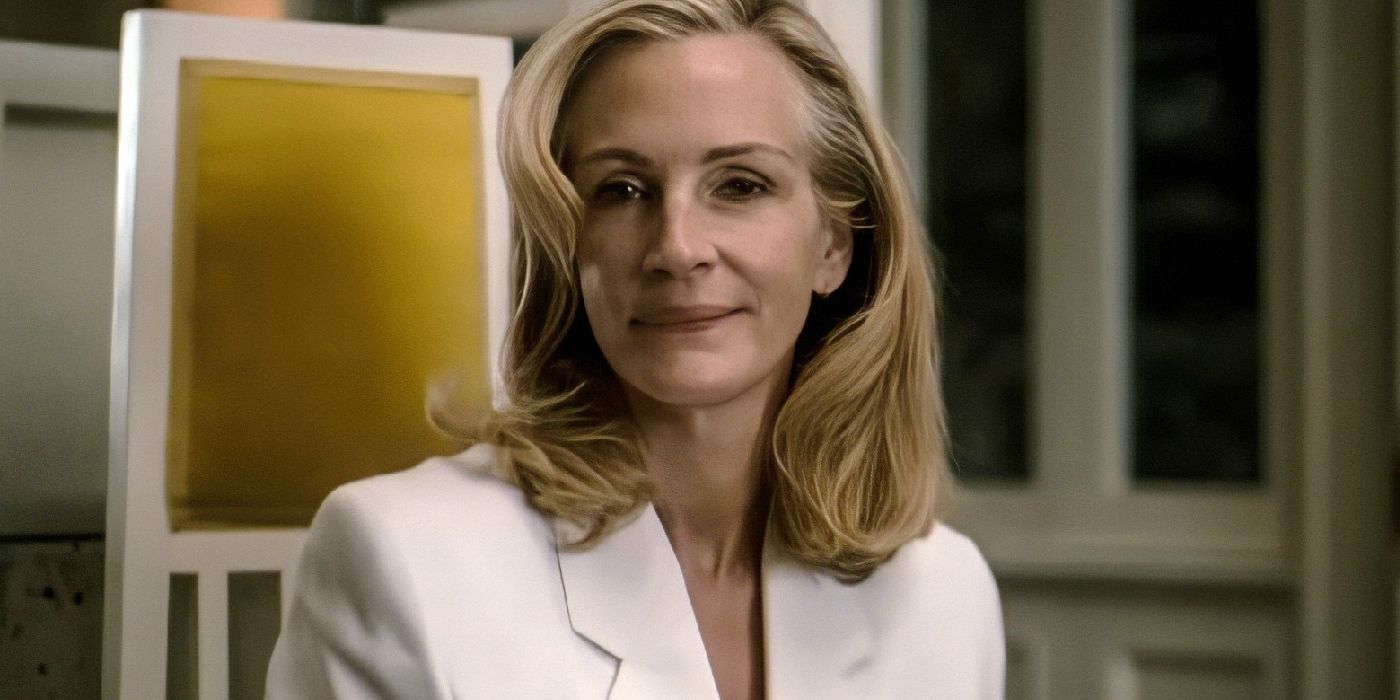
Amazon MGM Studios
The new film, *After the Hunt*, tackles an important and enduring topic, but it seems to be missing the mark with many viewers. Director Luca Guadagnino intentionally aims to make audiences uneasy by focusing on a highly sensitive situation. However, this approach may overshadow the film’s deeper message. While false accusations do happen, they’re uncommon – occurring in less than 10% of cases, according to the National Sexual Violence Resource Center. Many viewers find it problematic to feature prominent actors in a portrayal of such a rare event, framing it as an ethical study, considering the challenges women already face when reporting abuse.
Just because a film tackles challenging topics doesn’t mean it’s poorly made. Sometimes, focusing too much on social issues can actually simplify a movie and miss the potential of the art form. With After the Hunt, the issue isn’t the sensitive subject matter itself, but the fact that the film’s deeper ideas aren’t developed enough to justify the confusing and overly serious tone it attempts to create when portraying human actions.
Read More
- Best Controller Settings for ARC Raiders
- Gold Rate Forecast
- Survivor’s Colby Donaldson Admits He Almost Backed Out of Season 50
- How to Get the Bloodfeather Set in Enshrouded
- How to Build a Waterfall in Enshrouded
- Where Winds Meet: How To Defeat Shadow Puppeteer (Boss Guide)
- Meet the cast of Mighty Nein: Every Critical Role character explained
- Frieren Season 2 Drops First Look at Episode 1 Ahead of Crunchyroll Premiere
- 10 Ridley Scott Films With the Highest Audience Scores on Rotten Tomatoes
- The Sci-Fi Thriller That Stephen King Called ‘Painful To Watch’ Just Joined Paramount+
2025-10-18 00:35